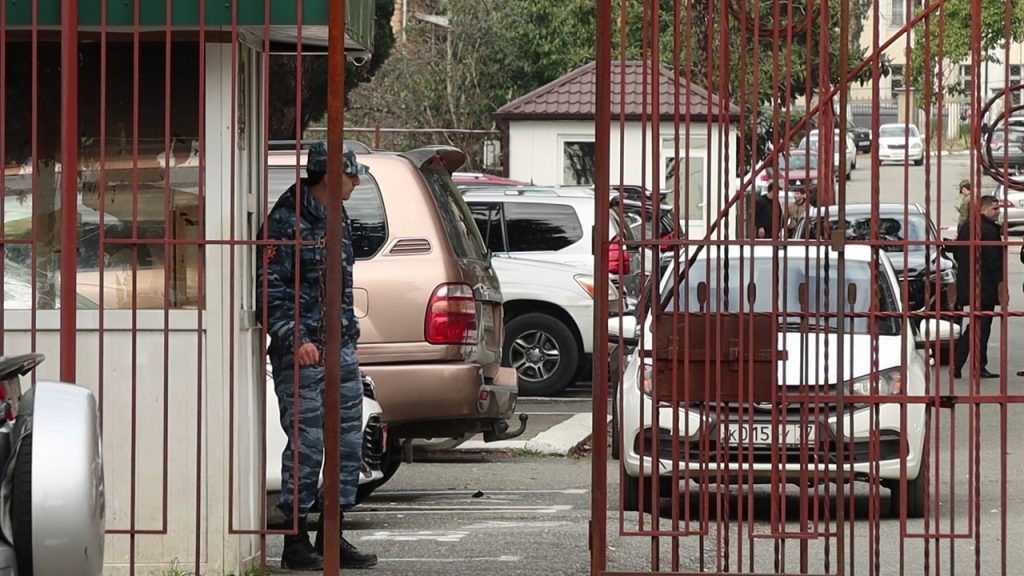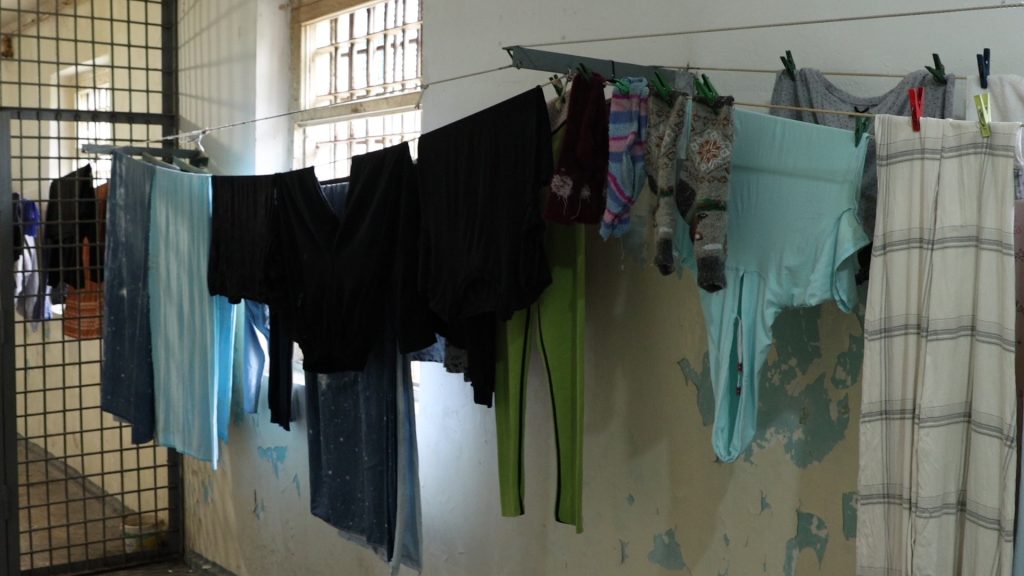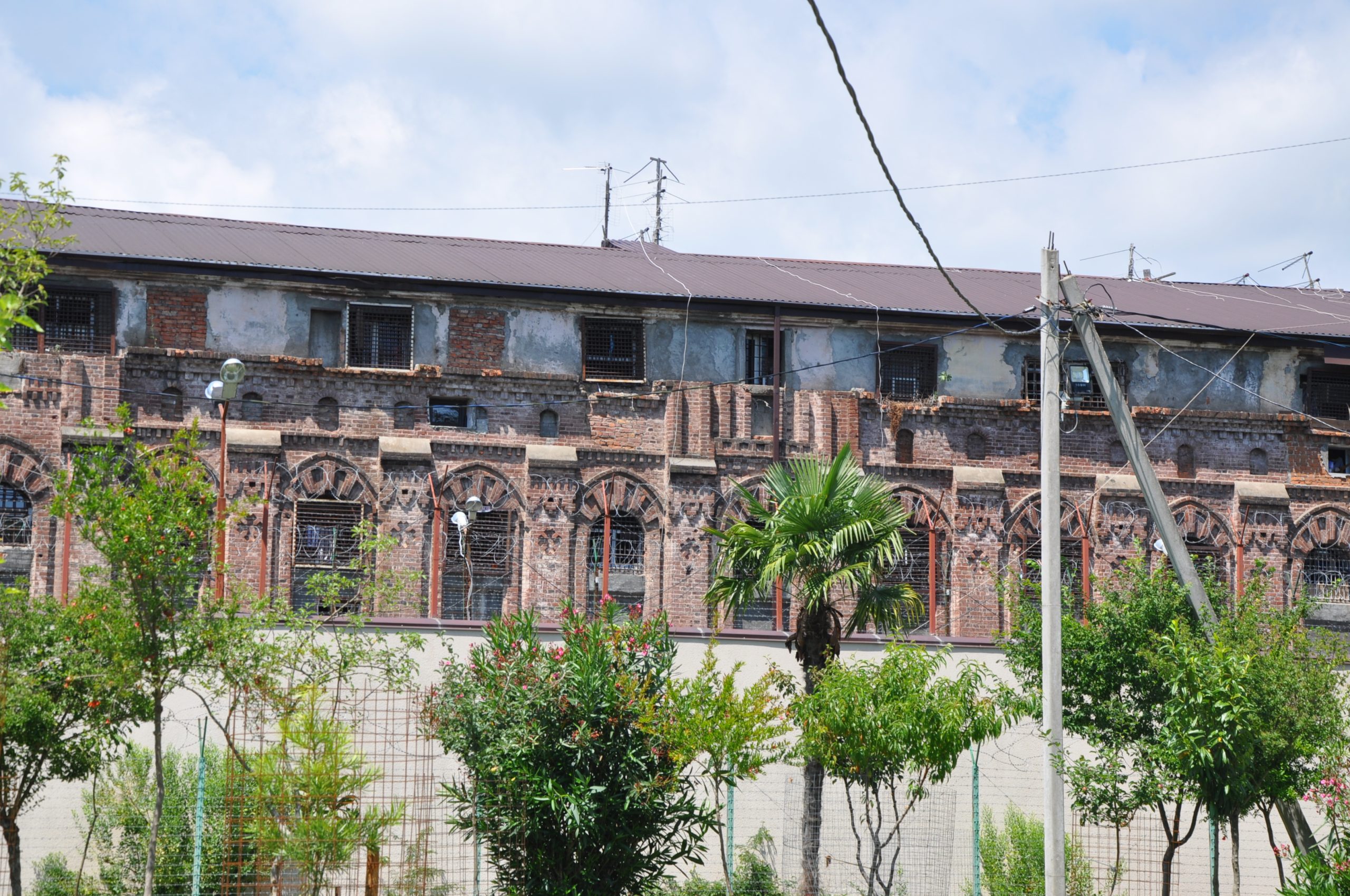"Ordinary people": how Abkhazia resists drug traffickers from Russia and Central Asia
Drug traffickers from Russia in Abkhazia
130 individuals are currently incarcerated in Abkhazia for drug distribution. The majority of them are citizens of Russia and Central Asia, who smuggled heavy synthetic drugs such as methadone and mephedrone into the republic.
? In Abkhazia, the average sentence for this crime ranges from 10 to 15 years of imprisonment.
7.5 years for “translation services”
Azbek, an 18-year-old native of Tajikistan, worked as a day laborer in Russia. When a friend suggested a trip to Abkhazia, he didn’t even explain that it wasn’t part of the Russian Federation:
“When we passed passport control, no stamps [in the passport] were placed. I realized we were in another country when I saw a car with different plates, not Russian.”
Azbek knew that his friend was dealing drugs. He merely acted as a translator for him: “I just translated. He couldn’t speak Russian at all, neither in the hotel nor in the taxi.”
? Abkhazian court “assessed” Azbek’s “translation services” at 7.5 years in prison.
- Russian tourist attacked, tortured in Abkhazia
- “Ashamed to be a victim”: stories of torture victims from Abkhazia
- Guram Imnadze: “The level of drug use among teenagers in Georgia is twice as high as in Europe”
- In 2022, 37 drug distributors were apprehended in Abkhazia, and one and a half kilograms of substances were seized.
- In 2023, the personnel of the Department for drug control (UKON) managed to apprehend 47 individuals and confiscate two and a half kilograms of “merchandise.”
Abkhazia’s minister of Internal affairs, Robert Kiut, attributes this success to the efforts of young but professional and motivated operatives. Their motivation primarily stems from generous bonuses for apprehending drug traffickers.
“Just because we are apprehending more criminals doesn’t mean there were fewer before. Our employees have simply become more effective,” says Kiut.

“Studied singing” – women’s cell
While the majority of those convicted for drug distribution are young men, increasingly more women are being caught in these activities lately. However, since there are no female prisons in Abkhazia, after trial, they are sent to a temporary holding facility within the Ministry of Internal Affairs.
Each chamber houses 5-10 individuals. The first thing that catches the eye is a large plasma TV. In general, if it weren’t for the bars on the windows and the bunk beds draped with cheap curtains, one might think they are in an old sanatorium.
On the TV, the series “Desperate housewives” is playing. And the residents of the chamber themselves don’t look any worse than the girls on the screen – they prepared carefully for the visit of journalists: they styled their hair and put on makeup.
22-year-old Elena Sinelnikova displays her diplomas and awards for participating in singing competitions. She once studied at the university and pursued vocal training. However, she met a guy who led her into debts and loans.
“During the pandemic, we were practically locked in the same apartment. I broke up with him as soon as I could get out, but the debts remained.”
To pay off her debts, Elena worked as a waitress and hostess, but her earnings were insufficient. She confided in a friend, who suggested transporting medicines to Abkhazia together with her friend’s boyfriend.
Elena claims she didn’t know she was transporting drugs but feels guilty and believes she can never redeem herself from this guilt.
“I’m guilty, first of all, before my parents, whom I didn’t turn to when I had difficulties, and I subjected them to much greater suffering than I could have,” the girl says, advising everyone who risks getting into a similar situation today to seek help from their families.
In prison, Elena reads a lot of religious literature and spends much time in prayer. She will be released at the age of 27 and will rebuild her life from scratch.

44-year-old Natalya Filippova has been sentenced to 16.5 years for transporting methadone in particularly large quantities. She and her husband were driving to his parents’ house in Abkhazia when 49 grams of this substance were found in their car at the border.
Natalya willingly talks to journalists and, like Elena, says she had no idea about the drugs in the car. Although she was aware of her husband’s drug addiction:
“We lived in Moscow. My husband was a war veteran with kidney disease, waiting for a transplant. He said he needed pills and syrups with narcotics to relieve pain.”
Natalya recalls that her husband tried to convince the law enforcement officers that she had no connection to the found methadone, but they didn’t believe him. Both were arrested. The man did not live to see the trial.
Where to put the prisoners when there’s nowhere to put them?
Abkhazia’s Minister of Internal Affairs, Robert Kiut, explains that operatives have begun targeting larger suppliers, thanks to which they managed to seize 500 grams of methadone in January 2024 alone.
Some criminals are caught during the packaging stage of the drugs.
? One of them turned out to be an active employee of the Russian Ministry of Defense who fought in Ukraine.
The head of the Department for Drug Control, Astamur Pachalia, says that many Russians convicted in Abkhazia for drug trafficking ask to be allowed to sign a contract and participate in the so-called “special military operation” in Ukraine. However, there is currently no mechanism to allow this.
However, Abkhazian prisons are overcrowded, and there is not enough space for incoming drug traffickers. Therefore, negotiations are currently underway for Russia and Tajikistan to take back their citizens to serve their sentences in their home countries.

“The сonsumer Is also a criminal”
Astamur Pachalia explains that typically, Abkhazia serves as the endpoint of the drug distribution route. Dealers “tour” various regions of Russia and then come here.
Many of them are caught here, and sometimes they help to identify larger dealers. In such cases, Abkhazian authorities collaborate with their counterparts in Russia and share the information obtained.
The Department for drug control in Abkhazia is not only combating distribution but also drug consumption, considering drug-dependent individuals as potential (or actual) criminals.
? Such individuals are often found among the drivers of shuttle taxis and tour buses.
Sometimes they get behind the wheel while under the influence of narcotics, thereby endangering the lives of passengers.
“We had a glaring case where a driver overdosed while on the route,” says Robert Kiut.
- Drugs become more accessible in Armenia through social networks
- Marijuana use in Georgia – what does the law say?
- “Not my problem” – drug addiction in Azerbaijan
“The generation of mephedrone”
? Irma Anua, the chief physician of the narcological dispensary, told us that in 2023, 764 people were registered with them – twice as many as in 2022.
The number of people brought to the dispensary for examination by the police tripled: 6,027 people in 2023 compared to 2,220 in 2022.
Irma Anua laments that more and more young people are becoming addicted to mephedrone – a heavy synthetic drug that leads to irreversible changes in the psyche if used regularly:
“Mephedrone causes the release of serotonin, uplifts mood, but this effect quickly fades, leaving a sense of emptiness, anxiety, irritability. Addiction and mental disorders develop very soon after. They persist even after discontinuation of the drug. And then one will have to take medication for life and stay in touch with a psychiatrist.”
Doctors and police officers say that young women and people over 40 are increasingly becoming addicted to heavy drugs. Neither the catastrophic consequences of drug use nor the threat of spending many years in prison scares either consumers or distributors.
Moreover, they often simply do not know about all this.
Toponyms, terminology, views and opinions expressed by the author are theirs alone and do not necessarily reflect the views and opinions of JAMnews or any employees thereof. JAMnews reserves the right to delete comments it considers to be offensive, inflammatory, threatening or otherwise unacceptable



















